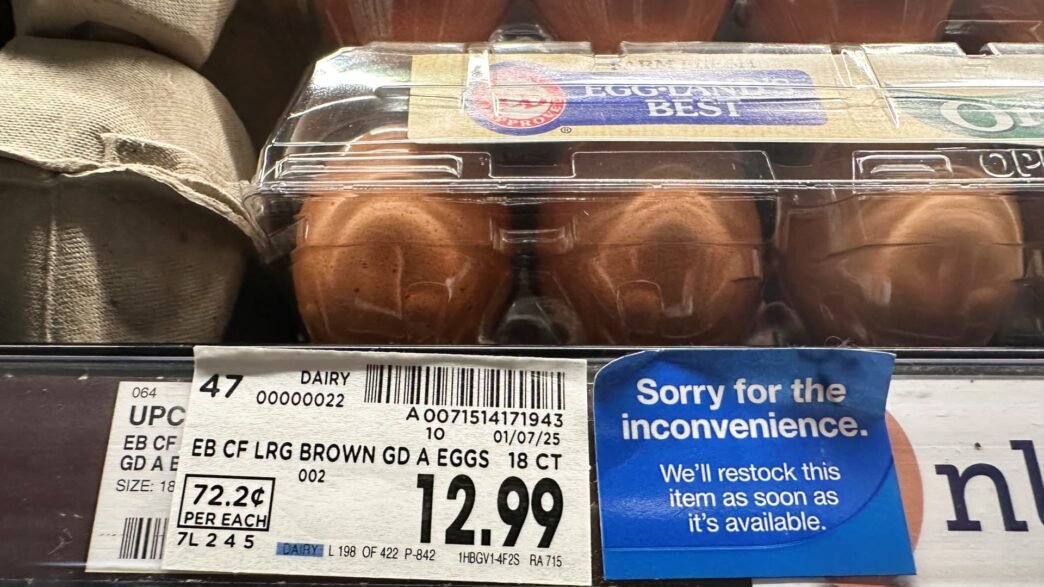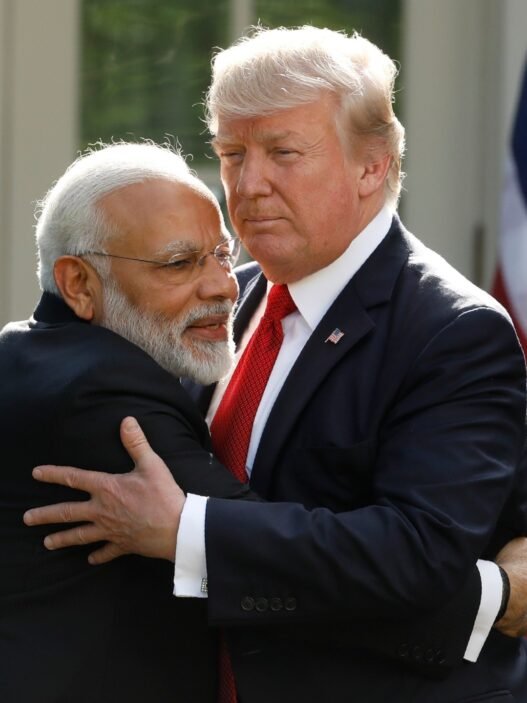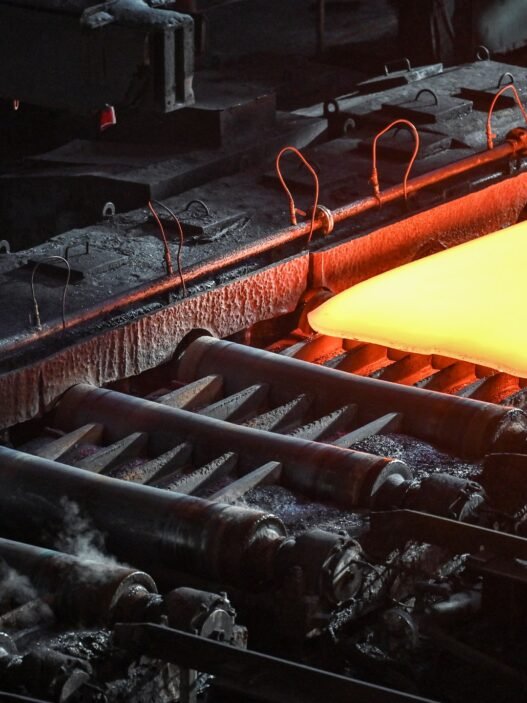Eggs for sale at 72.2 cents per egg from a supermarket on Feb. 10, 2025 in Monterey Park, California, U.S.
Frederic J. Brown | Afp | Getty Images
What do arthouse movies and U.S. interest rates in 2025 have in common? There’s a chance both will have no cuts.
The 3% figure for 12-month headline inflation hasn’t been seen since June. While it’s just 10 basis points higher than the 2.9% reading in December, the psychological shock of seeing that number — the way a $2.99 coffee might seem a lot cheaper than a $3 one — is already causing traders to lower their bets of an interest rate cut in the first half of the year, or of one happening at all in 2025.
That is, if the U.S. Federal Reserve is allowed to operate as the independent body that it has traditionally been. Seemingly changing his mind again, U.S. President Donald Trump has reiterated that interest rates should go down — while his tariffs, ranging from country-specific to industry-targeted to reciprocal ones, are implemented.
Wall Street seemed unprepared on how to take the news. Lower rates are mostly good news for investors, but tariffs are generally bad for prices. Stocks fell, but not as dramatically as some of the art movies do.
What you need to know today
Annual U.S. inflation hits 3%
The U.S. consumer price index rose 0.5% month on month in January and 3% for the year, the Bureau of Labor Statistics reported Wednesday. Both figures were higher than the Dow Jones estimate of 0.3% and 2.9%, respectively. Core CPI, which excludes food and energy prices, was also higher than expected. The hot inflation report dimmed hopes of more interest rate cuts this year by the U.S. Federal Reserve.
Trump reiterates rates should be cut
U.S. President Donald Trump said Wednesday that he thinks rates should come down, posting on Truth Social, “Interest Rates should be lowered, something which would go hand in hand with upcoming Tariffs!!! Lets Rock and Roll, America!!!” The Trump administration’s position on interest rates has been inconsistent. Trump said in January that he would demand interest rates drop “immediately” but subsequently said the Fed keeping rates unchanged in January was “the right thing to do.”
Trump to announce reciprocal tariffs on Thursday
Reciprocal tariffs by the U.S. could be announced by Thursday, press secretary Karoline Leavitt told reporters at the White House on Wednesday. Trump said Sunday that he plans reciprocal tariffs on “every country” that imposes import duties on the U.S. “Very simply it’s if they charge us, we charge them,” he said on Air Force One, NBC News reported. On Monday, Trump signed an order to impose 25% tariffs on steel and aluminum imports.
Cooling inflation in India
India’s headline inflation for January came in at 4.31% for the year, lower than the 4.6% expected in Reuters poll and the softest since August 2024, providing room for the Reserve Bank of India to continue cutting rates. Separately, Indian Prime Minister Narendra Modi will meet Trump and Elon Musk in Washington, D.C. on Thursday to discuss trade and artificial intelligence policy, CNBC has confirmed.
U.S. markets dip and Treasury yields jump
A hot CPI report singed U.S. stocks on Wednesday. The S&P 500 fell 0.27%, the Dow Jones Industrial Average lost 0.5% and the Nasdaq Composite was slightly above the flatline. Higher-than-expected prices also sent the U.S. 10-year Treasury yield above 4.6%. Europe’s regional Stoxx 600 index added 0.11%, recovering from earlier losses, and notched another record close.
[PRO] Year of the spinoff?
While Wall Street is holding its breath for 2025 to be the year mergers and acquisition deals spring back to life, breakups — such as Lennar’s spinoff of Millrose Properties last week — might dominate the narrative instead. Such corporate moves might unlock value for shareholders, if investors play them properly.
And finally…
Alice Weidel, chancellor candidate of the far-right Alternative for Germany (AfD) political party, speaks to supporters as they wave German flags at the AfD election campaign launch rally.
Sean Gallup | Getty Images News | Getty Images
East Germany is a far-right stronghold — and economic concerns helped make it happen
Germany’s far-right party, the Alternative fuer Deutschland, is dominating polls in the country’s eastern region less than two weeks before the federal elections on Feb. 23 — and economic concerns have played a part in its popularity. After the fall of the Berlin Wall in 1989, the economy in East Germany broadly collapsed as local businesses and companies faltered and unemployment soared.
These issues have since largely disappeared, according to Holger Schmieding, chief economist at Berenberg. But the far right has worked to trigger pre-existing feelings of being a “second class citizen,” Matthias Diermeier, head of the research unit for democracy, society and the market economy at IW, told CNBC.











